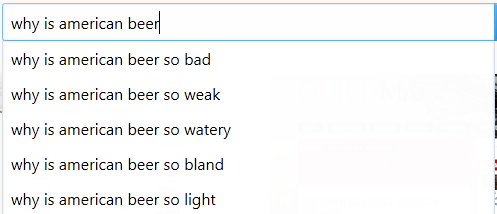I took a couple of weeks off over the summer and subsequently forgot some of the interesting articles I’d intended to link to from the blog (but no sensible person comes here for breaking news, do they?). Here’s one from the wonderfully named Worthwhile Canadian Initiative blog:
The conventional Canadian view is that American beer is bad; watery and weak. Yet American breweries produce some of the world’s best beers — superb brews coming out of microbreweries across the country.
What is striking about the United States is the country’s level of inequality — or, to be more precise, the beer quality inequality. Countries like Germany, Belgium — the Scandinavian countries in general — have much less variation in the quality of their beer.
The question is: why? Does beer quality inequality result from other forms of inequality, like disparities in income and wealth? Or do the forces that produce income inequality also produce beer quality inequality? Is it a spurious correlation, or is the armchair empiricist’s observation that the US has more beer ine-quality simply wrong?
The income-causes-beer quality inequality story is easily told. Some people are poor. They demand cheap beer, and cheap beer is necessarily poor quality. Some people are rich. They demand high quality beer, and are willing to pay for it. Hence, in theory, we would expect income inequality to produce beer quality inequality. As an empirical observation, the US has substantially more income and beer quality inequality than other rich countries, including Canada, while Scandinavian countries have some of the lowest levels of income and beer inequality in the world (here). So income inequality causes beer quality inequality: Q.E.D.
This story is plausible, and there may be some truth to it. The problem with it is that not everybody drinks beer. Take a country like England, for example. There beer was traditionally a working man’s drink — the upper classes sipped Pimm’s on the lawn, or perhaps a gin and tonic. If the rich aren’t drinking beer, an increased concentration of income in the hands of the richest 1 percent will have no impact on the variation in beer quality.




